| Title | Categories | Action |
| Governance arrangements for marine ecosystems of the Wider Caribbean Region | CLME Project, English, Technical Report | Download |
|
Abstract: The CLME Project includes a Regional Governance Framework (RGF) component that is aimed at analyzing the regional ocean governance situation in the Wider Caribbean Region and proposing an RGF as a basis for the Strategic Action Programme (SAP) that is a major output of the Project. The RGF component of the CLME Project combines information drawn from the pilots and case studies with information from additional governance analyses at the level of the entire WCR and also with other studies conducted outside the CLME Project to develop a multi-scale, multilevel RGF. This report describes the work done and the RGF that has been proposed for the SAP. |
||
| Governance assessment for Pedro Bank, Jamaica | CLME Project, English, Technical Report | Download |
|
Abstract: Detailed assessments of governance architecture for the Pedro Bank. The purpose of the assessment carried out here is to dissect and display the suite of governance arrangements for the major governance issues identified for Pedro Bank in order to facilitate discussion among stakeholders. The area for the assessment was the entire Pedro Bank with an initial focus on the Pedro Cays where most human activity and impact occur. The assessment focuses on living marine resources and the requirement for an ecosystem approach to their sustainable use. |
||
| Governance assessment for the Guianas-Brazil continental shelf fisheries ecosystem | CLME Project, English, Technical Report | Download |
|
Abstract: Detailed assessment of governance architecture for the Guianas-Brazil continental shelf fisheries ecosystem. The purpose of the assessment carried out here is to dissect and display the suite of governance arrangements for the major governance issues identified for this ecosystem in order to facilitate discussion among stakeholders. |
||
| OSPESCA/CLME Pilot for the Shared Stocks of the Central American Lobster Fisheries | CLME Project, English, Technical Report | Download |
|
Abstract: Detailed assessment of governance architecture for the shared stocks of the Central American lobster fisheries. Its purpose is to dissect and display the suite of governance arrangements for the six major issues identified for the Central American lobster fisheries in the Caribbean, in order to facilitate discussion among stakeholders. This discussion can lead to shared perceptions of what should be in place, what principles should be prominent and how the system should be structured. The assessment is not intended to lead to a prescriptive output regarding what should be in place. Nonetheless, some broad observations can be made on aspects of the system that need attention if arrangements are to be structured in a way that is likely to lead to effective governance, including the promotion of inter-sectoral and inter-issue integration that is needed for an ecosystem approach. |
||
| Report on the Survey of National Intersectoral Coordination Mechanisms | CLME+ Project, English | Download |
| Year Abstract: Many social and economic sectors, and thus government agencies together with their multi-stakeholder partnerships, have an interest in marine affairs. The mix of agencies will vary by country, and within country, over time as responsibilities shift and issues change in nature, priority or prominence. The importance of national inter-sectoral coordination mechanisms (NICs) is highlighted in the CLME+ Strategic Action Programme
|
||
| SOMEE – Concept Notes | CLME+ SAP, English | Download |
|
Abstract: concept and methodology of the SOMEE reporting mechanism |
||
| SOMEE Outline | CLME+ SAP, English | Download |
|
Abstract: first draft outline of the “State of the Marine Ecosystems and Associated Economies” (SOMEE) report, which was presented for the consideration of the constituencies of CRFM, IOC of UNESCO, OECS and UN Environment Programme – CEP.
|
||
| Survey of the regional science-policy interface for ocean governance in the Wider Caribbean Region | CLME Project, English, Technical Report | Download |
|
Abstract: This report, following a brief review of literature on the topic, describes the process and product of an interview investigation of the science-policy interface in the WCR conducted as part of the Regional Governance Framework (RGF) consultancy with the CLME project. The report contributes to developing the RGF and formulating a Strategic Action Programme (SAP) as the next major stage of the CLME project. The target audiences are all CLME participants and interested parties. Findings should be of particular interest to those dealing with the Information Management System and Regional Environmental Monitoring Programme. Twenty countries and four regional organisations were surveyed, resulting in 103 respondents from 73 interviews across the organizations and government ministries concerned with environment, fisheries, foreign affairs and tourism that were targeted. |
||
| The Valuation of Marine Ecosystem Goods and Services in the Wider Caribbean Region | CLME Project, English | Download |
|
Abstract: This report provides a summary of economic analyses of marine ecosystem services in the Wider Caribbean Region for the three major marine ecosystem types being addressed by the Caribbean Large Marine Ecosystem (CLME) Project: reef, pelagic and continental shelf. Particular attention is given to empirical valuation studies. An overview of existing valuation methodologies is provided, along with recommendations for applications in the in the CLME Project area. |
||

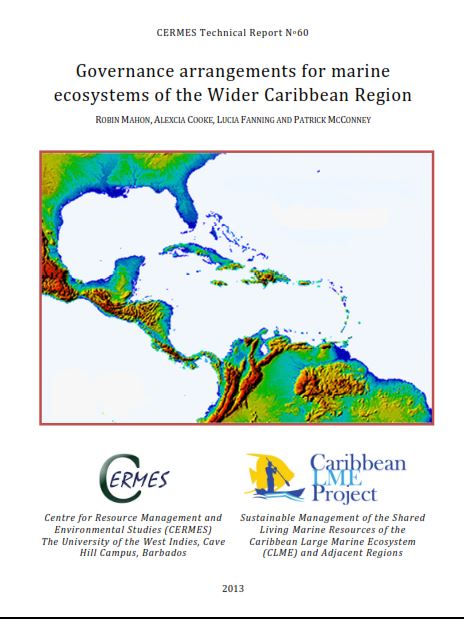 Year of publication: 2013
Year of publication: 2013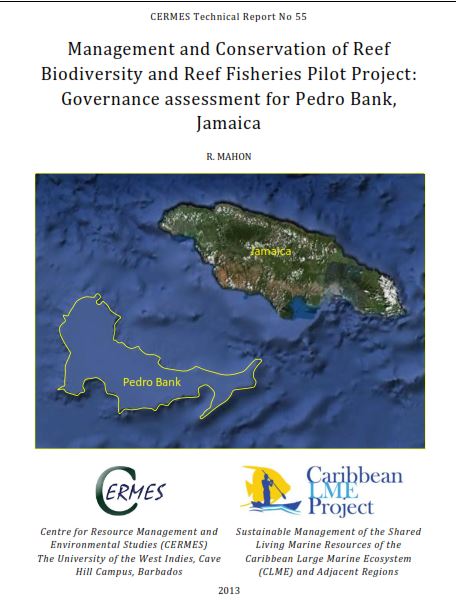 Year of publication: 2013
Year of publication: 2013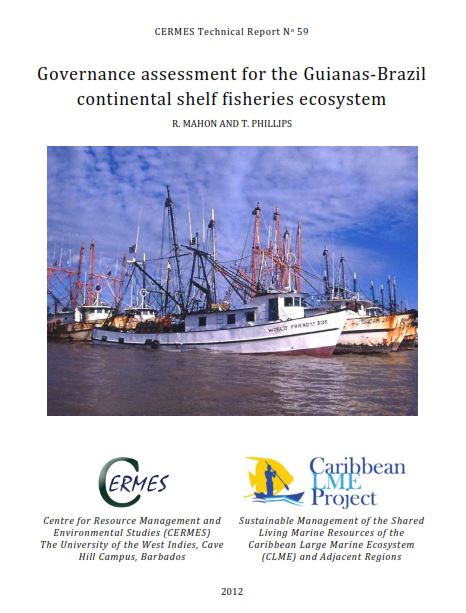 Year of publication: 2012
Year of publication: 2012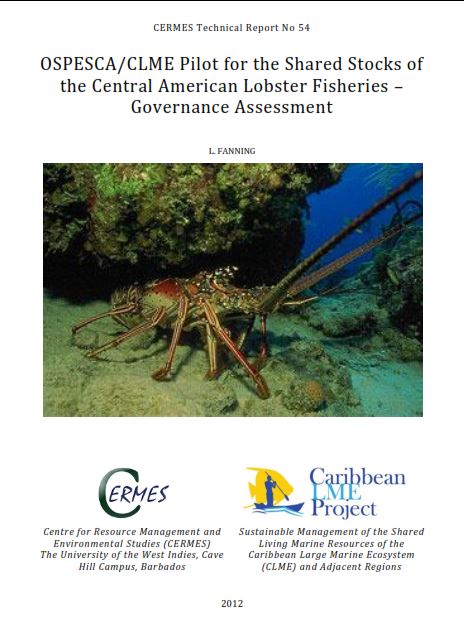 Year of publication: 2012
Year of publication: 2012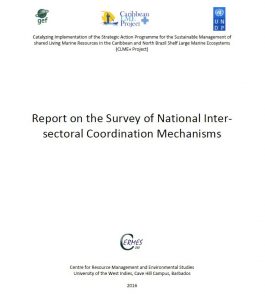 of publication: 2016
of publication: 2016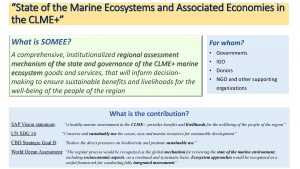 Year of publication: 2017
Year of publication: 2017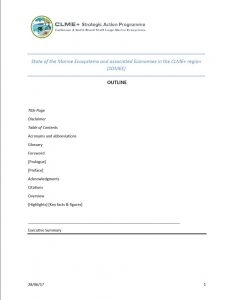 Year of publication: 2017
Year of publication: 2017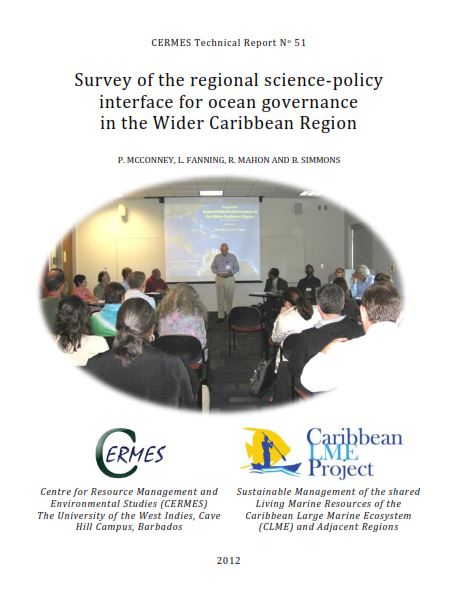 Year of publication: 2012
Year of publication: 2012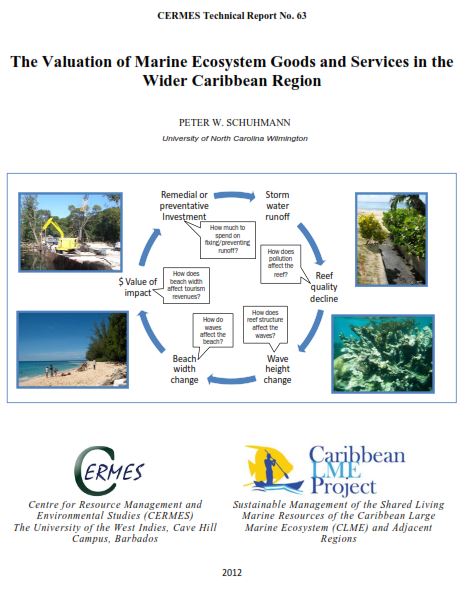 Year of publication: 2012
Year of publication: 2012
